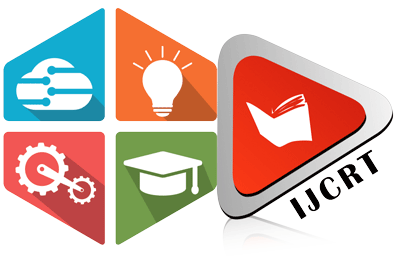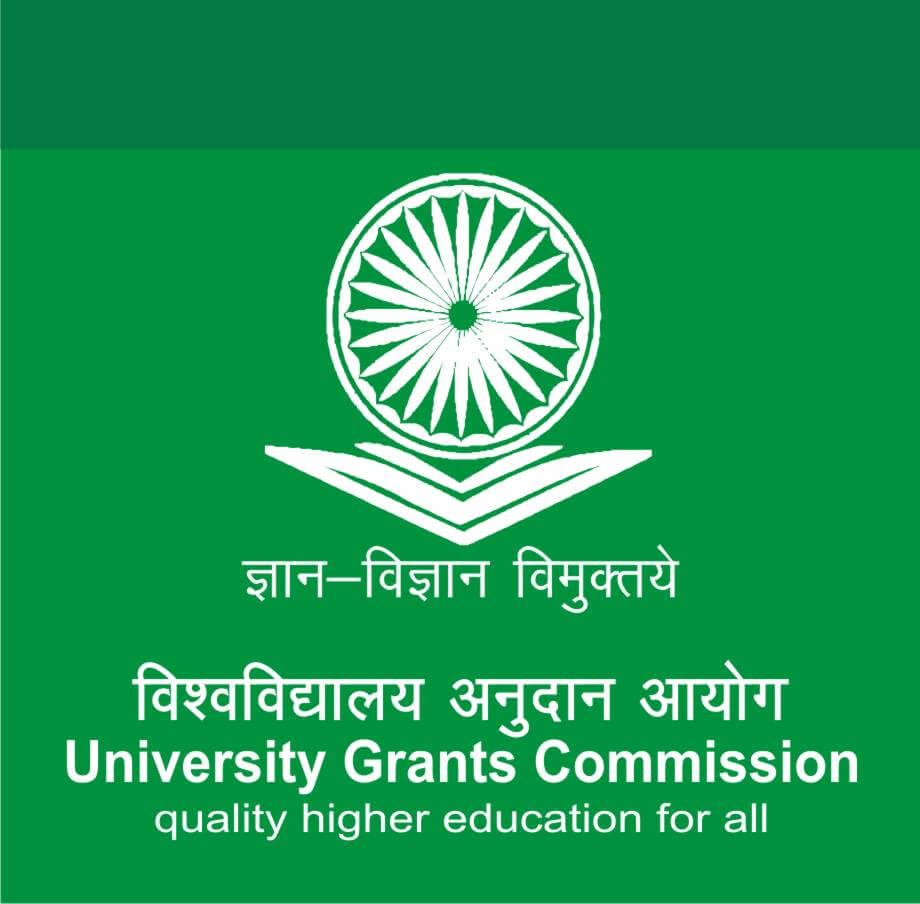INTERNATIONAL JOURNAL OF CREATIVE RESEARCH THOUGHTS - IJCRT (IJCRT.ORG)
International Peer Reviewed & Refereed Journals, Open Access Journal
IJCRT Peer-Reviewed (Refereed) Journal as Per New UGC Rules.
ISSN Approved Journal No: 2320-2882 | Impact factor: 7.97 | ESTD Year: 2013
Call For Paper - Volume 13 | Issue 10 | Month- October 2025
Scholarly open access journals, Peer-reviewed, and Refereed Journals, Impact factor 7.97 (Calculate by google scholar and Semantic Scholar | AI-Powered Research Tool) , Multidisciplinary, Monthly, Indexing in all major database & Metadata, Citation Generator, Digital Object Identifier(CrossRef DOI)
Contact Us Click Here
WhatsApp Contact Click Here
Volume 12 | Issue 5
| IJCRT Journal front page | IJCRT Journal Back Page |
Paper Title: Music Recommendation System based on Facial Expression and Speech
Publisher Journal Name: IJCRT
Your Paper Publication Details:
Published Paper ID: - IJCRTAF02079
Register Paper ID - 260993
Title: MUSIC RECOMMENDATION SYSTEM BASED ON FACIAL EXPRESSION AND SPEECH
Author Name(s): Mrunmayee Shewale, Sahil Sinha, Prof. Satyajit Sirsat
Publisher Journal name: IJCRT
Volume: 12
Issue: 5
Pages: 392-396
Year: May 2024
Downloads: 196
Abstract
Abstract - In recent years, with the development and use of big data, deep learning has begun to attract more and more attention. Convolutional neural network, a deep learning neural network, plays an important role in facial image recognition. This paper combines convolutional neural networks' knowledge of micro interpretation technology with an automatic music recognition algorithm to create patterns that recognize micro faces, speak, and recommend music based on your mood. The facial micro expression recognition model developed in this article uses FER 2013 and the recognition rate is 62.1%. After determining the similarity, the content-based music recognition algorithm was used to extract the feature vector of the song, and the cosine similarity algorithm was used for music recognition. This research helps improve the effectiveness of music recognition, and r elated results can also be applied to the use of music recognition in areas such as emotion regulation. Keywords: deep learning, face macro recognition, CNN, FER2013, CB, music recommendation algorithm
Licence: creative commons attribution 4.0
License
Keywords
Music Recommendation System based on Facial Expression and Speech
License
Paper Title: Multi-Speciality Hospital Management System with Integration of Healthcare Chatbot
Publisher Journal Name: IJCRT
Your Paper Publication Details:
Published Paper ID: - IJCRTAF02078
Register Paper ID - 261035
Title: MULTI-SPECIALITY HOSPITAL MANAGEMENT SYSTEM WITH INTEGRATION OF HEALTHCARE CHATBOT
Author Name(s): Sopan Kshirsagar, Yashraj Patel, Minal Pawar, Pratik Pawar
Publisher Journal name: IJCRT
Volume: 12
Issue: 5
Pages: 387-391
Year: May 2024
Downloads: 197
Abstract
The Healthcare Chatbot for Hospital Management System utilizing the Dialogflow Framework represents a groundbreaking initiative poised to revolutionize the landscape of healthcare services within hospital settings. Using the stateof- the-art natural language processing capabilities built into the Dialogflow framework, this creative chatbot acts as a smart intermediate, significantly improving hospital administration systems' effectiveness, accessibility, and efficiency. At its core, this chatbot is a beacon of technological advancement, seamlessly integrating with existing hospital infrastructures to optimize a myriad of essential functions. From facilitating the intricate dance of appointment scheduling, rescheduling, and cancellations to orchestrating the symphony of patient flow management, this intelligent interface redefines the boundaries of administrative efficiency. Patients, the beating heart of any healthcare system, are empowered like never before through this transformative tool. Administrative burdens, once perceived as insurmountable obstacles, are effortlessly navigated with the assistance of this intelligent chatbot. Billing inquiries, insurance verification processes, and admission procedures are executed with unparalleled efficiency, freeing up valuable time and resources for more meaningful engagements. The result is a harmonious convergence of technology and humanity, where the intricacies of healthcare management are transformed into opportunities for seamless collaboration and compassionate care.
Licence: creative commons attribution 4.0
License
Keywords
Chatbot, Healthcare, Dialogflow, hospital management system, Natural Language Processing
License
Paper Title: Multiple Disease Prediction Using Machine Learning Algorithm
Publisher Journal Name: IJCRT
Your Paper Publication Details:
Published Paper ID: - IJCRTAF02077
Register Paper ID - 261036
Title: MULTIPLE DISEASE PREDICTION USING MACHINE LEARNING ALGORITHM
Author Name(s): Farzana Jawale, Ritik Singh, Dr. Naveenkumar Jayakumar, Dr. Saurabh Saoji
Publisher Journal name: IJCRT
Volume: 12
Issue: 5
Pages: 383-386
Year: May 2024
Downloads: 207
Abstract
Due to the large quantum of information, it's delicate for croakers to directly descry the symptoms of the complaint and make an early opinion of the complaint. There are two ways to determine whether a specific complaint is present in the case's body. It takes a lot of time manually. Using machine literacy algorithms makes our job easier. thus, each contagion has its own specific uses. There's no universal system or practice for prognosticating colorful conditions. thus, the proposed system has an operation that can prognosticate numerous conditions with the help of stoner input. Algorithms used in the proposed system; support vector machines, logistic retrogression, decision trees and KNN algorithms. The results presented by the system are in double format similar as" yes" or" no"
Licence: creative commons attribution 4.0
License
Keywords
Heart Disease, Diabetes, Parkinsons Prediction Machine Learning, accuracy
License
Paper Title: MULTI -MODAL DEEP LEARNING FOR CONTENT-BASED IMAGE RETRIEVAL
Publisher Journal Name: IJCRT
Your Paper Publication Details:
Published Paper ID: - IJCRTAF02076
Register Paper ID - 261037
Title: MULTI -MODAL DEEP LEARNING FOR CONTENT-BASED IMAGE RETRIEVAL
Author Name(s): Abhishek Jadhav, Deepak Jadhav, Rugved Khandetod, Prof. Tushar Waykole
Publisher Journal name: IJCRT
Volume: 12
Issue: 5
Pages: 379-382
Year: May 2024
Downloads: 193
Abstract
Content-Based Image Retrieval (CBIR) has witnessed significant advancements with the emergence of deep learning techniques. However, traditional CBIR systems often rely solely on visual features extracted from images, overlooking other modalities that can enrich the retrieval process. In this paper, we propose a multi-modal deep learning framework for CBIR that integrates information from different modalities to enhance retrieval performance. Our approach combines visual features extracted from Vision Video Graphics (VVGs) with textual descriptions or other modalities associated with images.
Licence: creative commons attribution 4.0
License
Keywords
Deep learning, VVG,Similarity measures, Semantic gap, Semantic Embeddings , Multi-modal Fusion.
License
Paper Title: Metropolitan Pay2Park System
Publisher Journal Name: IJCRT
Your Paper Publication Details:
Published Paper ID: - IJCRTAF02075
Register Paper ID - 261038
Title: METROPOLITAN PAY2PARK SYSTEM
Author Name(s): Mrs. Kirti Borhade, Mr. Shlok A Gaikwad, Mr. Chaitanya D Thonge, Mr. Prajwal A Purnapatre
Publisher Journal name: IJCRT
Volume: 12
Issue: 5
Pages: 374-378
Year: May 2024
Downloads: 191
Abstract
With the increasing number of vehicles on city streets, finding parking spaces has become increasingly difficult. This leads to drivers spending more time and fuel circling streets in search of parking, contributing to city congestion. To address this issue and align with the trend of developing smart cities, various techniques used by smart parking systems are being evaluated. One such technique involves a mobile sensing unit attached to vehicles, which measures the distance to the nearest roadside obstacle and utilizes supervised learning algorithms to estimate parking occupancy. This system's accuracy is significantly improved when coupled with precise GPS readings and map matching techniques. Furthermore, the adoption of smart parking systems not only enhances convenience for drivers but also promotes environmental sustainability by reducing unnecessary fuel consumption and emissions. By optimizing parking space utilization, smart cities can effectively alleviate traffic congestion and improve the overall quality of urban life.
Licence: creative commons attribution 4.0
License
Keywords
vehicles, parking spaces, city streets, congestion, smart cities, smart parking systems, mobile sensing unit, supervised learning algorithms, GPS readings, map matching techniques, convenience, environmental sustainability, fuel consumption, emissions, traffic congestion, urban life.
License
Your Paper Publication Details:
Published Paper ID: - IJCRTAF02074
Register Paper ID - 261039
Title: MEDI-TRACK
Author Name(s): Prof. Rupali Kaldoke, Akshay Karnavar, Yashraj Chavan, Nishant Desle
Publisher Journal name: IJCRT
Volume: 12
Issue: 5
Pages: 370-373
Year: May 2024
Downloads: 234
Abstract
In modern healthcare, the emphasis is on promoting self-care and prioritizing patient autonomy over solely relying on therapy. Medication management plays a crucial role in comprehensive healthcare, and medication administration errors lead to significant financial losses each year. To combat these issues, the local app "Seeb" was developed to help Iranians manage their medications efficiently. Concurrently, the app "Medi-Track" was created using the Flutter framework for cross-platform mobile development and integrates Firebase for backend support. Medi-Track provides users with the ability to add their medications, schedule reminders, and track health records, thus streamlining medication management. The app extends beyond medication tracking by serving as a health journal for users to record key health information. Medi-Track aims to enhance efficiency and support individuals by transforming innovative healthcare concepts into practical applications.
Licence: creative commons attribution 4.0
License
Keywords
Statistically tracked particle swarm optimization (STPSO), Group statistical characteristics, Deregulated automatic generation control
License
Paper Title: MediTrack: Adherence Aid
Publisher Journal Name: IJCRT
Your Paper Publication Details:
Published Paper ID: - IJCRTAF02073
Register Paper ID - 261040
Title: MEDITRACK: ADHERENCE AID
Author Name(s): Prof. Rupali Kaldoke, Akshay Karnavar, Yashraj Chavan, Nishant Desle
Publisher Journal name: IJCRT
Volume: 12
Issue: 5
Pages: 366-369
Year: May 2024
Downloads: 218
Abstract
Self-care is given precedence over therapy in comprehensive healthcare, which acknowledges the need of drug therapy, particularly in the field of medicine. The annual financial expenditures associated with prescription administration errors led to the creation of the Iranian medication reminder app, "Seeb," locally. In addition, "Medi- Track" functions as a mobile application with Firebase support for backend operations, leveraging the Flutter framework for cross-platform development. Medi-Track makes medication management easier by enabling users to add medications, set reminders, and keep track of their health information. In addition to managing appointments and renewals, it serves as a health journal where users can record important medical information. The Main Objectives of Medi-Track is to use technology to turn innovative healthcare concepts into workable realities while maximizing efficiency and helping individuals.
Licence: creative commons attribution 4.0
License
Keywords
Medication Management, Mobile Health Application, Digital Health, Health Tracking, Patient Empowerment, Medication Reminder, Health Informatics.
License
Paper Title: Malicious Twitter Bot Detection and URL analysis: A Review of Existing System
Publisher Journal Name: IJCRT
Your Paper Publication Details:
Published Paper ID: - IJCRTAF02072
Register Paper ID - 261041
Title: MALICIOUS TWITTER BOT DETECTION AND URL ANALYSIS: A REVIEW OF EXISTING SYSTEM
Author Name(s): Bhavika Talele, Kuntal Rane, Abhishek Pohare, Prof.Satyajit Sirsat
Publisher Journal name: IJCRT
Volume: 12
Issue: 5
Pages: 362-365
Year: May 2024
Downloads: 185
Abstract
In today's world social media platforms like Twitter is facing a growing challenge with the increase in the number of malicious Twitter bots. The increase of the malicious Twitter bots poses a significant threat to the social media platforms authenticity and trustworthiness. The detection and reduction in the influence of these bots is a critical challenge, as these bots spread false information, manipulate the public opinion and may also engage in fraudulent activities, eating away the trust in the online spaces. This review paper presents diverse analysis of the current landscape of detecting the malicious twitter bots using the URL analysis technique and advanced machine learning techniques. The paper explores the use of machine learning models and algorithms, to classify and identify these bots based on the URL patterns and their behavior.
Licence: creative commons attribution 4.0
License
Keywords
Malicious Twitter bots, URL analysis, Machine learning, URL patterns
License
Paper Title: Machine learning method to classify WBCs and RBCs from blood smear images
Publisher Journal Name: IJCRT
Your Paper Publication Details:
Published Paper ID: - IJCRTAF02071
Register Paper ID - 261043
Title: MACHINE LEARNING METHOD TO CLASSIFY WBCS AND RBCS FROM BLOOD SMEAR IMAGES
Author Name(s): Prof. Kirti Borhade, Mr. Saurabh Wakase, Mr. Shiv Yandralwar, Mr. Pratham Zambare
Publisher Journal name: IJCRT
Volume: 12
Issue: 5
Pages: 357-361
Year: May 2024
Downloads: 179
Abstract
Therapeutic diagnostics fantastically advantage from the mechanized classifying of white corpuscle into WBC and blood cells from little blood spread pictures, which makes it easier to recognize assorted blood afflictions. The objective of this wander is to utilize picture examination to isolate between rosy blood cells (erythrocytes) and white blood cells (leukocytes) utilizing machine learning strategies. Preprocessing the blood spread pictures to make strides differentiate and expel commotion is the to begin with step in the proposed technique. Taking after that, highlights such as shape, surface, and color data are extricated from the photographs utilizing highlight extraction methods. A assortment of machine learning procedures, such as choice trees, convolutional neural systems (CNNs), and back vector machines (SVMs), utilize these extricated highlights as inputs. This investigate propels robotized frameworks for blood cell categorization by utilizing these strategies. These frameworks have the potential to be utilized in clinical diagnostics, pathology investigation, and therapeutic investigate, giving healthcare specialists with valuable instruments for exact and compelling ailment observing and determination.
Licence: creative commons attribution 4.0
License
Keywords
Image Preprocessing, Convolutional Neural Networks (CNNs), Data Augmentation
License
Paper Title: Machine Learning Based On An Adaptive Approach For Subjective Answer Evaluation.
Publisher Journal Name: IJCRT
Your Paper Publication Details:
Published Paper ID: - IJCRTAF02070
Register Paper ID - 261047
Title: MACHINE LEARNING BASED ON AN ADAPTIVE APPROACH FOR SUBJECTIVE ANSWER EVALUATION.
Author Name(s): Mrs. Kavyashree H N, Mr. Madhur Manohar Dhole, Mr. Vedant Milind Kakade, Mr. Prathamesh Suraj Mane
Publisher Journal name: IJCRT
Volume: 12
Issue: 5
Pages: 351-356
Year: May 2024
Downloads: 191
Abstract
In the present circumstances, examinations can be classified into two distinct categories: objective and subjective. Competitive exams typically fall into the format of multiple choice questions, which require them to be administered and evaluated on computer screens. At present, most competitive examinations are being held online because of the high volume of students taking part in them. Nevertheless, subjective assessments like board exams are not suitable for computer-based administration. It is essential to incorporate Artificial Intelligence (AI) into our online examination systems. The integration of AI in the management of online exams would significantly streamline the assessment of subjective responses. Moreover, this approach would result in faster and more accurate results. Our proposed system would be carefully designed to replicate the marking process carried out by human evaluators. As a result, this system would be extremely valuable to educational institutions.
Licence: creative commons attribution 4.0
License
Keywords
Automated answer verifier, answer verifier, theory answer checker, matching answers.
License
Paper Title: A Research paper on Sensor Based Automated Irrigation System
Publisher Journal Name: IJCRT
Your Paper Publication Details:
Published Paper ID: - IJCRTAF02069
Register Paper ID - 261049
Title: A RESEARCH PAPER ON SENSOR BASED AUTOMATED IRRIGATION SYSTEM
Author Name(s): Prof. Pritam Ahire, Ninad Thorat, Rohan Yeole, Shivam Zanzane
Publisher Journal name: IJCRT
Volume: 12
Issue: 5
Pages: 347-350
Year: May 2024
Downloads: 183
Abstract
Advent of Internet of Things (IoT) technology has rised in various sectors, including agriculture, by introducing automated systems for efficient resource management. This case study presents an IoT-based automated irrigation system designed to optimize water usage in agriculture, ensuring both efficiency and sustainability. By integrating sensors to detect soil moisture levels, weather conditions, and plant requirements, the system intelligently controls irrigation processes. Real-time data analysis enables precise watering schedules tailored to the specific needs of crops, reducing water wastage and enhancing crop yield. Moreover, remote accessibility through mobile applications empowers farmers to detect and control irrigation activities from anywhere, fostering convenience and flexibility. This innovative approach not only conserves water resources but also promotes sustainable farming practices, contributing to environmental preservation and long-term agricultural viability.
Licence: creative commons attribution 4.0
License
Keywords
IoT, automated irrigation, efficiency, sustainability, smart agriculture
License
Paper Title: Lung Care: Advanced Lung Cancer Survival Prediction System
Publisher Journal Name: IJCRT
Your Paper Publication Details:
Published Paper ID: - IJCRTAF02068
Register Paper ID - 261051
Title: LUNG CARE: ADVANCED LUNG CANCER SURVIVAL PREDICTION SYSTEM
Author Name(s): Dr. Rohini Hanchate, Vaibhavi Narkhede, Sushil Narsale, Mahesh Belhekar
Publisher Journal name: IJCRT
Volume: 12
Issue: 5
Pages: 338-346
Year: May 2024
Downloads: 168
Abstract
This report offers a thorough comparative analysis of three prominent machine learning models-- Naive Bayes, Gradient Boosting, and Ensemble Learning--in the domain of predicting the severity levels of lung cancer. Through meticulous data curation and preprocessing, a wide array of health parameters and lifestyle factors were incorporated to ensure the robustness of predictive modeling. The report delineates the rigorous methodologies employed in model training and evaluation, encompassing the utilization of diverse performance metrics to assess predictive efficacy comprehensively. By conducting extensive experimentation and comparative analysis, invaluable insights into the predictive capabilities and limitations of each model were garnered. These findings carry profound implications for healthcare professionals, furnishing them with evidence-based insights to facilitate early intervention and personalized treatment planning for patients at risk of lung cancer progression. Ultimately, this study endeavors to elevate clinical decision-making processes, fostering improved patient outcomes and more efficient allocation of healthcare resources in the management of lung cancer.
Licence: creative commons attribution 4.0
License
Paper Title: Lung Cancer Patient Survival Prediction Using Ensemble Learning
Publisher Journal Name: IJCRT
Your Paper Publication Details:
Published Paper ID: - IJCRTAF02067
Register Paper ID - 261055
Title: LUNG CANCER PATIENT SURVIVAL PREDICTION USING ENSEMBLE LEARNING
Author Name(s): Dr. Rohini Hanchate, Vaibhavi Narkhede, Sushil Narsale, Mahesh Belhekar, Prof.Pritam Ahire
Publisher Journal name: IJCRT
Volume: 12
Issue: 5
Pages: 334-337
Year: May 2024
Downloads: 195
Abstract
This study presents a comparative analysis of Naive Bayes, Random Forest, and Gradient Boosting algorithms for predicting the survival of lung cancer patients. As lung cancer continues to be one of the leading causes of cancer-related deaths globally, accurate prediction is essential for treatment planning and patient care. Here, these machine learning methods are used to create predictive models by utilizing a dataset that included clinical variables and patient outcomes. Each model's performance was evaluated using metrics such as accuracy, precision, recall, and F1-score. Furthermore, a feature importance analysis was carried out to pinpoint the critical prognostic parameters affecting the prediction of survival. Our results demonstrate the effectiveness of Gradient Boosting in achieving the highest predictive performance, followed by Random Forest and Naive Bayes. Furthermore, the feature importance analysis revealed critical clinical variables contributing to survival prognosis, providing insights into the underlying factors influencing lung cancer patient outcomes. This study plays a pivotal role in advancing personalized medicine by enabling more precise survival prognoses for individuals diagnosed with lung cancer. Such insights empower clinicians to make well- informed decisions regarding treatment strategies, ultimately enhancing the quality of patient care.
Licence: creative commons attribution 4.0
License
Keywords
Lung Cancer, Prediction, Ensemble learning, Voting Classifiers, Naive Bayes, Random Forest, Gradient Boosting, Accuracy, Precision, and F1- score.
License
Paper Title: Intelligent Android-Based Object Detection and Identification System
Publisher Journal Name: IJCRT
Your Paper Publication Details:
Published Paper ID: - IJCRTAF02066
Register Paper ID - 261056
Title: INTELLIGENT ANDROID-BASED OBJECT DETECTION AND IDENTIFICATION SYSTEM
Author Name(s): Prof. Roshni Narkhede, Shreyas Kumbhar, Viren Lahamage, Prashant Nangare
Publisher Journal name: IJCRT
Volume: 12
Issue: 5
Pages: 329-333
Year: May 2024
Downloads: 187
Abstract
The sense of sight is one of the most important senses for each human being. Regretfully, visual problems affect millions of individuals globally and provide serious obstacles to information access and communication. Their inability to maneuver safely and freely is frequently hampered by this battle. The suggested approach aims to convert the visual world into an aural one in order to remedy this problem. Using real-time object detection technology, this change will enable those with vision impairments to walk independently without the need for outside support. The program uses machine learning and image processing to quickly identify items using the camera in real time. It can also provide audio output to blind users so they can know where things are. This cutting-edge technology seeks to address the many issues caused by the incapacity to distinguish between items.
Licence: creative commons attribution 4.0
License
Keywords
Object Detection, Android Application, YOLO, CNN (Convolutional Neural Network), Visually Impaired people, Computer Vision, Algorithms.
License
Paper Title: Innovations in Agricultural Research: A Comprehensive Review of Machine Learning, Sustainable Farming Practices, and Smart Technologies
Publisher Journal Name: IJCRT
Your Paper Publication Details:
Published Paper ID: - IJCRTAF02065
Register Paper ID - 261059
Title: INNOVATIONS IN AGRICULTURAL RESEARCH: A COMPREHENSIVE REVIEW OF MACHINE LEARNING, SUSTAINABLE FARMING PRACTICES, AND SMART TECHNOLOGIES
Author Name(s): Prof. Rupali Kaldoke, Soham Mane, Vibha Waghe, Jaydeep Jogdand
Publisher Journal name: IJCRT
Volume: 12
Issue: 5
Pages: 324-328
Year: May 2024
Downloads: 175
Abstract
This comprehensive review examines recent advancements in agricultural research through a thorough analysis of four pivotal studies. Each paper contributes distinctive insights to the agricultural landscape, covering topics from integrating machine learning in seed testing to the adoption of natural farming practices, the implementation of smart farming technologies, and the development of an automatic system for crop pest and disease monitoring. The synthesis of these studies illuminates evolving strategies and technologies with the potential to enhance agricultural productivity, sustainability, and resilience.
Licence: creative commons attribution 4.0
License
Keywords
Plant disease detection, Deep learning, Crop pest management, Knowledge graphs, Machine learning, Crop health, Early detection, Data integration, Remote sensing, Image processing
License
Paper Title: Indian Sign Language Recognition System
Publisher Journal Name: IJCRT
Your Paper Publication Details:
Published Paper ID: - IJCRTAF02064
Register Paper ID - 261060
Title: INDIAN SIGN LANGUAGE RECOGNITION SYSTEM
Author Name(s): Atharva Shinde, Anushri Shivale, Siddhesh Phapale, Assistant Prof.Renuka Kajale
Publisher Journal name: IJCRT
Volume: 12
Issue: 5
Pages: 319-323
Year: May 2024
Downloads: 215
Abstract
People can interact and exchange ideas and emotions through communication. The social contacts of the deaf community are hindered by multiple factors. The people converse with each other using sign language. A technology can translate sign languages into a form that is comprehensible in order to communicate with ordinary people. Developing a real- time text-to-Indian Sign Language (ISL) translation system is the aim of this project. For the most part, manual labor is used. In this paper, we describe a convolutional neural network-based deep learning method for classifying signs. We initially construct a classifier model using the numerical signs and the Python-based Keras convolutional neural network implementation. In phase two, a second real-time system was used to use skin segmentation to detect the Region of Interest in the frame that displays the bounding box. To forecast the sign, the segmented region is fed into the classifier model. The accuracy rating of the system for the same subject is 99.56% in poor light and 97.26% in high light. It was observed that the classifier improved with varying image capture angles and backgrounds. The RGB camera system is the main emphasis of our strategy.
Licence: creative commons attribution 4.0
License
Keywords
Real-time systems, areas of interest, convolutional neural networks, and deep learning
License
Paper Title: Implementing a Real-time Facial Emotion Detection System using Machine Learning
Publisher Journal Name: IJCRT
Your Paper Publication Details:
Published Paper ID: - IJCRTAF02063
Register Paper ID - 261061
Title: IMPLEMENTING A REAL-TIME FACIAL EMOTION DETECTION SYSTEM USING MACHINE LEARNING
Author Name(s): Prof. Sopan Kshirsagar, Harshad Shinde, Salman Shikalgar, Ruturaj Raut
Publisher Journal name: IJCRT
Volume: 12
Issue: 5
Pages: 314-318
Year: May 2024
Downloads: 189
Abstract
Facial expression detection is a critical component of the application designed to address mental health issues. By leveraging cutting-edge machine learning algorithms, system can analyse facial expressions to detect early signs of Facial , anxiety, and other mental health concerns. The approach involves gathering data from various sources, including social media networks, to train our models and improve their accuracy. System employs sophisticated techniques such as image and video processing to analyse facial gestures and expressions. Key facial characteristics including the lips, nose, hands, and eyes can help us recognize small clues that represent various emotional states. These cues include variations in muscle movements, changes in facial symmetry, and shifts in skin tone. Proposed approach makes use of an extensive emotion expression system that classifies facial expressions into several emotional states, such as neutral, happy, sad, and angry. By precisely recognizing these emotions, system can give clients bits of knowledge into their psychological prosperity and accommodate them with identifying possible problems early on. Through extensive analysis of facial expressions and behavioural patterns, the application can offer personalized recommendations and assistance to those dealing with problems related to mental health. By use of the identification and analysis of facial emotions, system empower the clients to proactively pursue improving their psychological well-being and seeking appropriate assistance when needed. In general, systems goal to enable early identification and analysis of mental health concerns is greatly aided by system's facial expression detection technology, which in turn helps people live longer, better lives.
Licence: creative commons attribution 4.0
License
Keywords
Facial Emotion detection, Deep learning, Machine learning, Early detection, Real-time sensing, CNN, image processing, naive bias, medical science, supervised machine learning
License
Paper Title: Review Paper Of Pomegranate Fruit Disease Detection System
Publisher Journal Name: IJCRT
Your Paper Publication Details:
Published Paper ID: - IJCRTAF02062
Register Paper ID - 261062
Title: REVIEW PAPER OF POMEGRANATE FRUIT DISEASE DETECTION SYSTEM
Author Name(s): Yogesh gend, Prathamesh Patil, Dr. Naveenkumar Jayakumar, Dr. Saurabh Saoji
Publisher Journal name: IJCRT
Volume: 12
Issue: 5
Pages: 309-313
Year: May 2024
Downloads: 204
Abstract
Farmers suffer economic losses due to agricultural dis eases. Routine disease detection and health monitoring in pomegranate crops is labor intensive, requires atte ntion and takes time. On the other hand, new advances in computer vision a nd imaging have made it possible to detect diseases in pomegranate plants. This study provides an overview of image processing techniques for detecting pomegran ate disease. This study provides an overview of image processing techniques for detecting pomegranate disea se. We also address the challenge of identifying disease s in images and demonstrate the possibility of accurate identification using deep learning.
Licence: creative commons attribution 4.0
License
Keywords
CNN, Softmax layer, SVM (support vector machine), K-means, and pomegranate
License
Paper Title: Implementation on College Placement Portal
Publisher Journal Name: IJCRT
Your Paper Publication Details:
Published Paper ID: - IJCRTAF02061
Register Paper ID - 261063
Title: IMPLEMENTATION ON COLLEGE PLACEMENT PORTAL
Author Name(s): Aniruddha Shinde, Suraj Pol, Prathamesh Bhosale, Deepali Patil
Publisher Journal name: IJCRT
Volume: 12
Issue: 5
Pages: 304-308
Year: May 2024
Downloads: 206
Abstract
The development of a web application for training and placement cell management marks a significant stride towards automating manual and arduous tasks within the training and placement department. This platform serves as a centralized hub where students can input all requisite educational and personal information, aligning their profiles with the requirements of prospective companies. The primary objective of this initiative is to furnish a user-friendly login interface accessible to students, training and placement officers, and other pertinent employees. Students can effortlessly input necessary information into the system, streamlining the process, while training and placement officers can readily access pertinent student data. With the implementation of a fully automated system, the need for extensive manpower is diminished, resulting in substantial time savings for both students, training n placement officer. Moreover, this system serves as a centralized repository capable of controlling and processing all academic and personal student information. Additionally, the system facilitates various functionalities, including sending notices to students, generating lists of students based on company criteria, providing resumes of shortlisted students to HR companies, sending details of shortlisted students to companies, and managing student profiles and logins. By amalgamating these features into a cohesive platform, the web application enhances efficiency, transparency, and effectiveness within the training and placement process while alleviating the burden of manual labor and fostering seamless communication between stakeholders.
Licence: creative commons attribution 4.0
License
Keywords
Web development, Admin, TPO, College, Authorization, Student, Portal.
License
Paper Title: Image And Text Encryption With Authorized Deduplication In Cloud
Publisher Journal Name: IJCRT
Your Paper Publication Details:
Published Paper ID: - IJCRTAF02060
Register Paper ID - 261064
Title: IMAGE AND TEXT ENCRYPTION WITH AUTHORIZED DEDUPLICATION IN CLOUD
Author Name(s): Prof. Yogesh Shepal, Rushikesh Deshmukh, Himanshu Barhate, Pooja Daundkar
Publisher Journal name: IJCRT
Volume: 12
Issue: 5
Pages: 300-303
Year: May 2024
Downloads: 176
Abstract
To secure deduplication plans we have proposed to spare the capacity space in the cloud firstly the AES encryption conspires which utilizes a message inferred key to scramble the message. Subsequently, indistinguishable plaintexts deliver the same cipher writings. Proposed AES, which subsumes concurrent encryption and gives nitty gritty security definitions. Moreover, we utilize an MD5 calculation (message-digest calculation) cryptographic strategy for advanced marks, substance confirmation, and message confirmation. Based on a hash calculation, MD5 checks that the record you send and the beneficiary both get the same record. Thus, cloud computing is the headway to the shared volume of data through the arrange. There are parts of procedures that are utilized to give security for information in the cloud. But current procedures are way better related to the cipher content. So here, we propose data gathering, sharing, and prohibitive dissemination arranged with multi-proprietor security protection in the cloud. Here, the information proprietor can give private data to gather clients through the cloud in a secure.
Licence: creative commons attribution 4.0
License
Keywords
MD-5 (Message-Digest Algorithm)
License
About IJCRT
The International Journal of Creative Research Thoughts (IJCRT) aims to explore advances in research pertaining to applied, theoretical and experimental Technological studies. The goal is to promote scientific information interchange between researchers, developers, engineers, students, and practitioners working in and around the world.
Indexing In Google Scholar, ResearcherID Thomson Reuters, Mendeley : reference manager, Academia.edu, arXiv.org, Research Gate, CiteSeerX, DocStoc, ISSUU, Scribd, and many more International Journal of Creative Research Thoughts (IJCRT) ISSN: 2320-2882 | Impact Factor: 7.97 | 7.97 impact factor and ISSN Approved. Provide DOI and Hard copy of Certificate. Low Open Access Processing Charges. 1500 INR for Indian author & 55$ for foreign International author. Call For Paper (Volume 13 | Issue 10 | Month- October 2025)
October 2025
Volume 13 | Issue 10
Last Date :
31-Oct-2025
Submit Manuscript Online Impact Factor: 7.97 Review Results : Within 02-03 Days Paper Publication : Within 02-03 Days

ISSN: 2320-2882 Impact Factor: 7.97 and ISSN APPROVED Journal Starting Year (ESTD) : 2013

ISSN: 2320-2882 Impact Factor: 7.97 and ISSN APPROVED Journal Starting Year (ESTD) : 2013

CONFERENCE PROPOSAL CONFERENCE PROCEEDINGS







































































